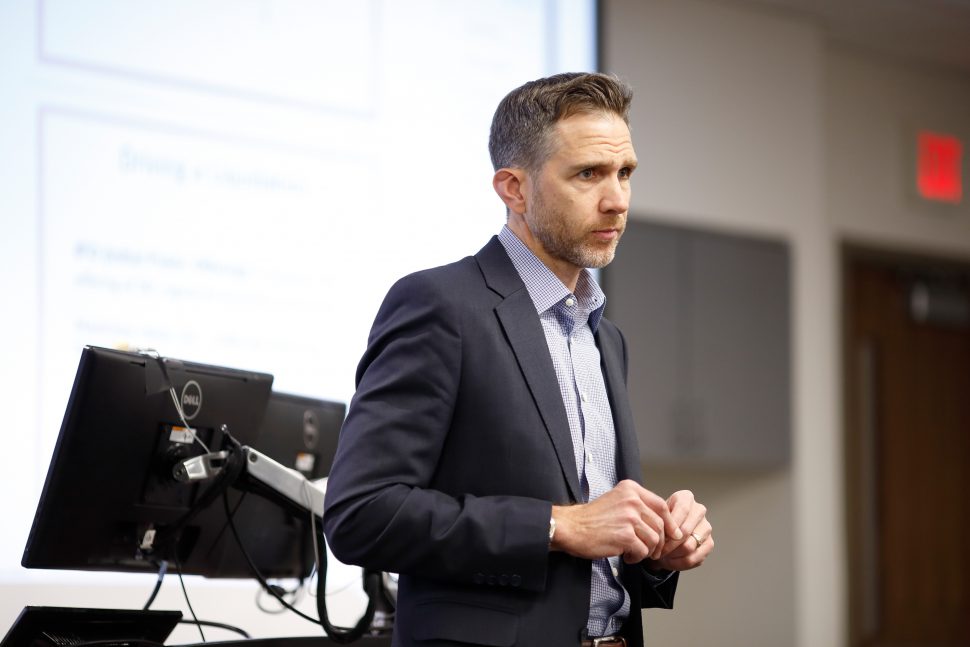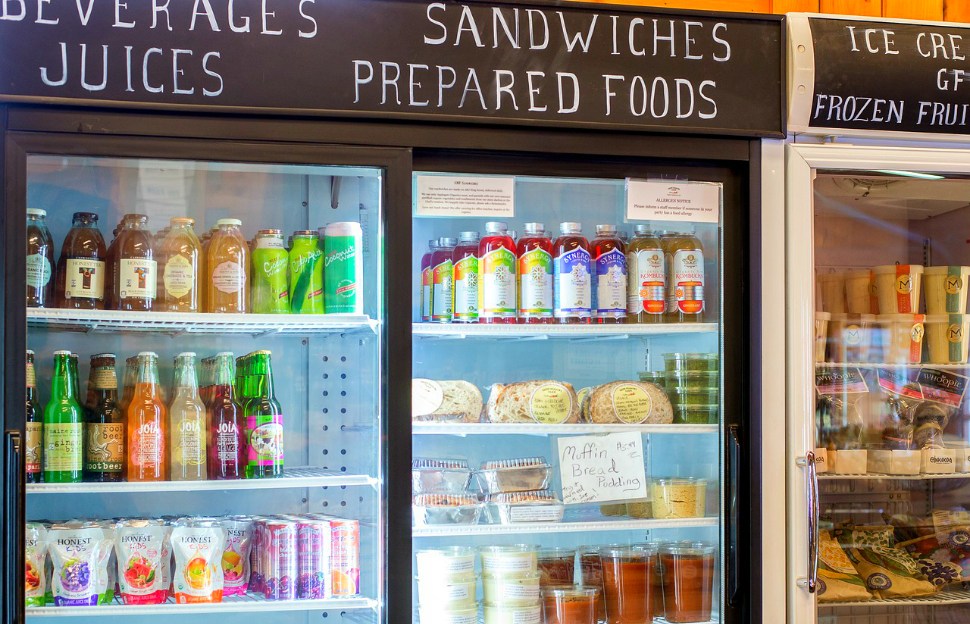Eli Kaberon, February 3, 2017
A 2015 study by Food Genius stated that at 4 p.m. on any given afternoon, as many as 80 percent of Americans don?t know what they?ll be eating that night for dinner.
That uncertainty has resulted in changes in the way food is sold. Along with sit-down and fast food restaurants that have always served as dining options for those who won?t be cooking, grocery stores now sell fully prepared meals customers can take home. Recently, mobile applications such as GrubHub, Postmates and UberEats entered the fray, making selecting what to dine on as easy as the push of a smartphone button.
Indiana University Senior Lecturer of Finance Gerry Hays has worked in the food industry more than a decade - including running a wholesale food supply company that provided prepared foods for grocery stores - and when he analyzed this dinner dilemma, he saw an opportunity.

Hays found that consumers benefited from the number of choices by paying less for dinner, but they were also eating less healthily as a result of these quicker options. Supermarkets? bottom lines were also taking hits, as more competition left stores with fewer customers shopping in the aisles on a daily basis. And while precooked dishes have helped stores attract some new business, they also result in a lot of waste from the meals that go unsold at the end of the day. Every year, grocery stores waste more than $160 billion worth of inventory-with prepared deli items responsible for a portion of that.
Hays knew there had to be another way. So in 2015 he created DinnerCall, a mobile application that allows users to order meals directly from the deli counter of participating supermarkets. The high-quality food is made fresh and is ready for pick-up when the customer chooses. By putting the grocers on the same platforms as restaurants, Hays believes people can find healthier meals for a lower price while reducing uneaten goods.
?Over the last five and six years, we?ve seen how more consumers are moving away from grocery and they are buying food directly from restaurants and fast food. And it?s only been pushed because of technology,? says Hays, an IU alum and graduate of the Indiana University School of Law. ?Restaurants and fast food are accepting technology at these accelerated rates and the grocery industry is losing out of the center aisle.?
Sales trends show that instead of shopping for a cart full of groceries in those center aisles of a store, more customers are going to the deli or bakery areas and buying prepared food there. That has forced grocers to adjust their strategies of attracting business, which is why DinnerCall can be so valuable.
?In order to compete with the restaurant industry and fast food, stores have to match the technology and find where the consumers are,? Hays added. ?Consumers want to be able to press a button and order their food; they don?t want to have to walk into a store and figure it out.?
DinnerCall was released initially in only three stores-one in Indiana, two in Tennessee- so that Hays and his partners could work out the bugs and see how customers responded. What they found was the technology worked great, but there was a learning curve from the public that previously didn?t think of their local store as a place to buy a delicious, nutritious, already-prepared meal. So the DinnerCall team went back to the app to add more marketing and educational capabilities to the platform.
In January, the app was re-introduced, and in early February, a 22-store chain in Indiana and Michigan will begin selling meals through DinnerCall. Hays said the app is looking to add a store per week, and soon will begin expansion across the U.S. The goal is to have 10,000 stores on the platform by 2020.
?It?s really a win-win,? Hays said. ?The grocery industry gets a win because they are finding a new revenue stream, because you are allowing consumers outside the store to buy prepared foods like it was a restaurant. And consumers get the benefit of healthier meals at lower prices than restaurants.?
IU has played a major role in the app?s growth. Fellow professors gave Hays advice and feedback every step of the way, on everything from marketing to technology. Additionally, the application is partially backed by the Innovate Indiana Fund, a venture capital fund that provides support for companies created by IU students, graduates, faculty members or staff.
There isn?t a sole way to solve the problem of what to eat for dinner every night. But Hays is hoping with DinnerCall more Americans will lower food waste and choose a healthy, affordable option from a grocery store in their neighborhoods.







